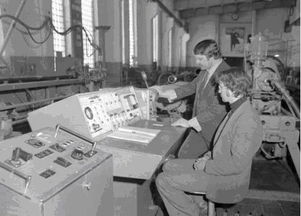Are you looking to delve into the world of high-frequency PCB materials? If so, Rogers AR is a name you should definitely be familiar with. Known for its exceptional performance and reliability, Rogers AR materials are widely used in various industries. In this article, we will explore the different aspects of Rogers AR, including its applications, advantages, and how it stands out in the market.
Understanding Rogers AR Materials

Rogers AR materials are a type of high-frequency PCB material that offers excellent electrical properties. These materials are made from a combination of polytetrafluoroethylene (PTFE) and ceramic fillers, which provide a unique balance of dielectric constant, loss tangent, and thermal properties. This combination makes Rogers AR materials ideal for high-frequency applications, such as RF, microwave, and millimeter-wave circuits.
Applications of Rogers AR Materials

One of the key reasons why Rogers AR materials are so popular is their wide range of applications. Here are some of the industries where Rogers AR materials are commonly used:
| Industry | Application |
|---|---|
| Wireless Infrastructure | Base station antennas, RF filters, and power amplifiers |
| Automotive Electronics | Telematics, radar systems, and infotainment systems |
| Consumer Electronics | Smartphones, tablets, and Wi-Fi routers |
| Medical Devices | Ultrasound imaging, MRI machines, and pacemakers |
| Aerospace and Defense | Avionics, satellite communication, and radar systems |
Advantages of Rogers AR Materials

There are several advantages that make Rogers AR materials a preferred choice for high-frequency PCB applications:
-
Low Dielectric Constant (Dk): Rogers AR materials offer a low Dk, which helps minimize signal loss and improve the performance of high-frequency circuits.
-
Low Loss Tangent (Tan未): The low Tan未 of Rogers AR materials ensures that the signal is transmitted with minimal loss, resulting in better overall performance.
-
Excellent Thermal Properties: Rogers AR materials have high thermal conductivity and a low coefficient of thermal expansion (CTE), making them ideal for high-power applications.
-
Chemical and Environmental Resistance: Rogers AR materials are resistant to chemicals, moisture, and extreme temperatures, ensuring long-lasting performance in various environments.
Market Position of Rogers AR Materials
Rogers Corporation is a leading manufacturer of high-performance materials, and Rogers AR materials are no exception. The company’s commitment to innovation and quality has helped it establish a strong position in the market. Here are some reasons why Rogers AR materials are preferred over other options:
-
Extensive Product Range: Rogers offers a wide range of Rogers AR materials with different Dk, Tan未, and thermal properties, allowing designers to choose the best material for their specific application.
-
Technical Support: Rogers provides comprehensive technical support, including material data sheets, design guidelines, and application notes, to help designers make informed decisions.
-
Global Presence: Rogers has a strong global presence, with manufacturing facilities and sales offices in various regions, ensuring timely delivery and support to customers worldwide.
Conclusion
Rogers AR materials are a game-changer in the world of high-frequency PCB materials. With their exceptional electrical properties, wide range of applications, and strong market position, Rogers AR materials are the go-to choice for designers and engineers looking to create high-performance circuits. Whether you are working on a wireless infrastructure project, an automotive electronics application, or a consumer electronics device, Rogers AR materials are the perfect solution to meet your needs.
